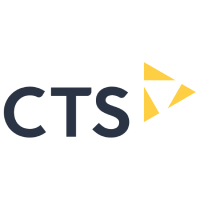 By Legal Futures Associate CTS
By Legal Futures Associate CTS
The UK’s productivity has been a concern for many years, with the country lagging behind other advanced economies in terms of productivity growth. Official data indicates that UK productivity in the third quarter of 2022 only slightly surpassed the level from the year before the Covid-19 pandemic began. Despite the significant changes in working practices caused by the Coronavirus lockdowns, productivity in the UK has continued to grow at a slow pace.
One factor contributing to the slow productivity growth in the UK may be a lack of investment in technology infrastructure, research and development, which are crucial for improving the productivity and growth of the economy, and for fostering innovation and new ideas. However, it seems that the government have acknowledged tech’s role in driving productivity and growth, and are taking steps to address it, as evident in their Spring Budget 2023.
The legal sector is waking up to the value and potential of innovative technologies such as generative Artificial Intelligence (AI), especially since the emergence of ChatGPT. Despite being in the research phase, ChatGPT has piqued the interest of legal professionals who are enquiring about its potential benefits for lawyers.
It was recently reported that Judge Juan Manuel Padilla Garcia in Cartagena, Colombia used ChatGPT to help him resolve the key issues in one of his cases. Following in-depth fact-checking, Judge Garcia included its full responses in his ruling, alongside his own opinions, explaining that the use case was to “assist and speed up the process — not to replace judiciary expertise.” The UK’s Magic Circle firm, Allen & Overy, has partnered with a start-up supported by Open AI, the creator of ChatGPT, to launch a chatbot aimed at improving productivity by supporting their lawyers in performing various legal tasks.
While some law firms and legal professionals are already taking steps to implement generative AI in their practices, many have concerns surrounding data privacy and compliance. Law firms and their IT teams already go to great lengths to ensure that in a digital-first world, sensitive information and communications are protected at all costs, and their concerns stem from inputting potentially sensitive data into a tool that they have no control over. How does ChatGPT process and store data? Does inputting this data violate data protection law or industry regulations? Although incredibly useful, should firms put policies in place to block the use of this kind of tech?
To address these concerns, Microsoft have developed Copilot, which combines the power of large language model (LLM) with your data in the Microsoft Graph and the Microsoft 365 apps to turn your words into the most powerful productivity tool on the planet. Copilot can be integrated with Word to generate first drafts, saving legal professionals hours in researching, writing and editing time. With Excel, you can easily analyse trends in data and create professional data visualisations. And with Teams, you can ask Copilot to summarise key discussion points including who said what and where people are aligned and where they disagree, and suggest action items, all in real time during a meeting. Being integrated with M365, Copilot automatically inherits all your firm’s valuable security, compliance, and privacy policies and processes.
In 2021, the Solicitors Regulation Authority provided a ‘state of the market’ overview of the use of technology and innovation in the legal services sector from the perspective of legal services providers including law firms.
According to the SRA’s Technology and Innovation in Legal Services report (2021), for those firms who are adopting to looking to adopt new technology, the most significant barriers are:
- A ‘lack of financial capital to invest in technology’ (58% of adopter respondents)
- A ‘lack of staff expertise to assess and implement technology’ (50%)
- ‘Regulatory uncertainty or barrier’ (45%).
Implementing change and innovation on a large scale requires a level of subject matter expertise, human resources and technology prowess, and demands a more dedicated and sophisticated capability than most legal practices currently have. And this where a specialist Managed Service Provider (MSP) can help.
Outsourcing IT functions to an MSP can allow law firms to streamline their in-house IT teams’ responsibilities and focus on growth and innovation. Delegating routine tasks, including help desk support, hardware and software maintenance, and network administration, can free up valuable time for in-house IT personnel to concentrate on higher-level initiatives. Law firms can provide their in-house IT teams with the necessary resources and bandwidth to explore innovative technology solutions that can drive the firm’s growth and success.
By outsourcing their IT function, law firms can access a diverse array of technology resources and expertise without the added capital expense of purchasing costly hardware, software, and infrastructure. This can help law firms to save on costs associated with technology implementation and maintenance, while also improving the efficiency and effectiveness of their IT operations.
Achieving your digital transformation goals requires a clear roadmap to ensure investment is optimised. Tap into a wealth of knowledge and expertise that you can leverage to support and shape your digital transformation strategy, incorporating the right technology that not only supports your business objectives, but can evolve and grow as you do, delivering a competitive and reputational advantage.










